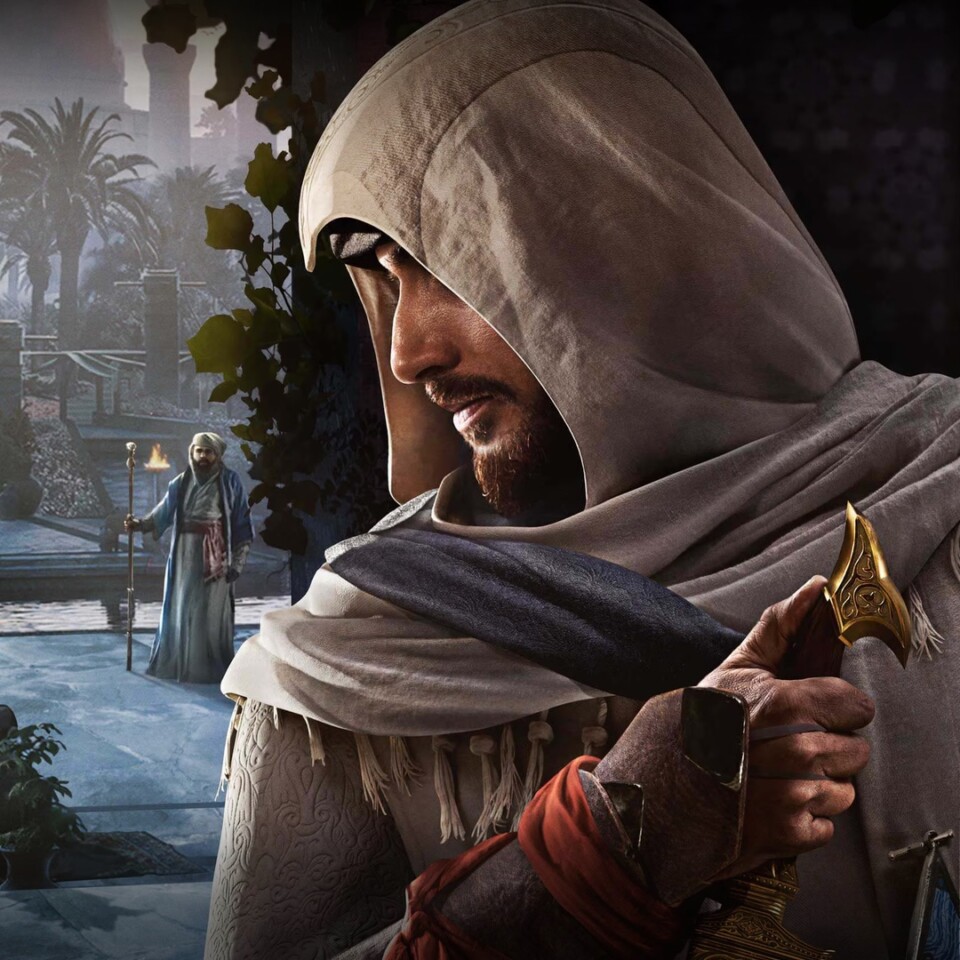At this year’s GDC, Ubisoft Bordeaux’s lead producer, Fabian Salomon, and creative director, Stéphane Boudon, explained how Assassin’s Creed Mirage was designed to pay homage to the franchise’s history and also look to its future.
Ubisoft Bordeaux was formed in 2017 and has provided support to the Assassin’s Creed and Ghost Recon franchises. Assassin’s Creed Mirage was initially planned as an expansion to Assassin’s Creed Valhalla, but it evolved into a standalone game and became the first project led by Ubisoft Bordeaux as the primary development studio.
Planning began in early 2021, Salomon says, in an environment affected by multiple external factors and a looming deadline. Due to the upcoming 15th-anniversary of Assassin’s Creed, the studio only had around two and a half years to ship the game.
“We started conception during the COVID lockdown. And the war in Ukraine strongly impacted our partner studios,” Salomon explains. “Thirteen studios were involved. Ubisoft Bordeaux as lead, and our colleagues in Belgrade, Bucharest, Craiova, Montpellier, Montreal, Quebec, Shanghai, Singapore, Philippines and Sofia. I would like to do a special thanks to our friends from Ukraine, in Kyiv and Odessa.”
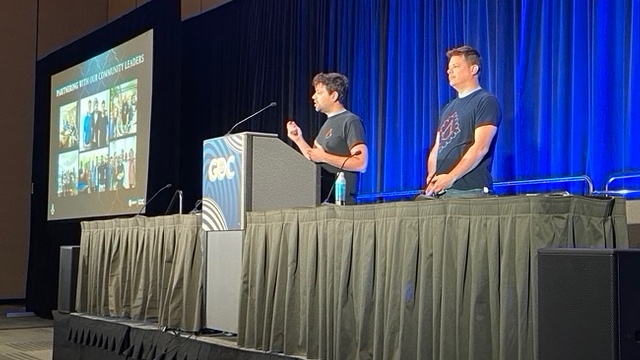
Salomon says that the expertise of Ubisoft’s partner studios was essential in bringing Mirage together. Due to the restricted timeframe, the team focused on the game’s core aspects – such as stealth, parkour, assassinations, and the city environment – as a platform for gameplay, instead of incorporating major new technological or gameplay innovations.
“Assassin’s Creed is a brand which turned 15 in 2022, and as with many brands, it’s been evolving across the years,” Boudon adds. “Mirage was an opportunity for us to come back on this legacy. It has been designed to be the anniversary game of the franchise, and the project is specially designed for the fan.”
Another early decision was to release Assassin’s Creed Mirage for both current and next-gen consoles. Sticking to the “Valhalla branch” had many benefits, explains Salomon.
“We had very mature tech with 15 years of tech heritage. We had a very stable engine, and we were cross-platform ready. But there were constraints, such as difficulty mastering the code and an architectural legacy on gameplay.”
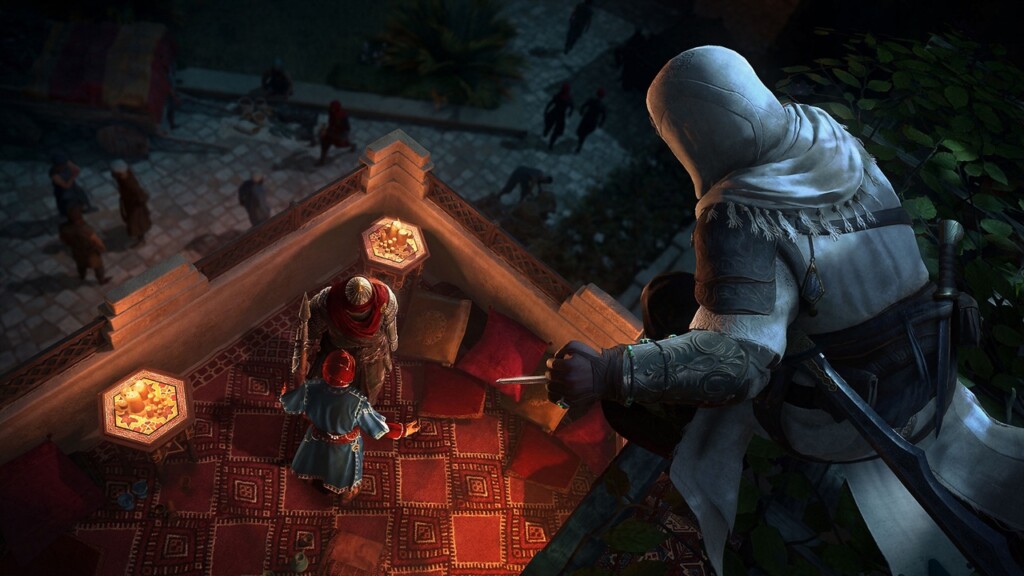
Stealth, parkour, and assassinations
As the game would mark the Assassin’s Creed brand’s 15th anniversary, Boudon says it was the ideal time to reflect on the legacy of the franchise and acknowledge the distinct eras of the series. Assassin’s Creed Mirage was unashamedly designed with fans in mind.
“When we look back on the history of the franchise, we usually talk about two main periods in Assassin’s Creed, characterised by the shape of experience offered and the general scope of those games. Period one – from Assassin’s Creed to Assassin’s Creed Syndicate – are action-adventure games. They are focused on open cities such as Jerusalem, Rome, and Paris, with the notable exception of Black Flag,” he explains.
“And then period two is composed of Assassin’s Creed Odyssey, Origins, and Valhalla. These are the most recent games in the series and opened Assassin’s Creed to the action-adventure RPG genre. Plus, they are set in a wider world, depicting entire countries like Egypt, Greece, England and Norway.”
Boudon adds that with Mirage, Ubisoft tried to discover what fans expected for the anniversary milestone. The development team conducted player listening sessions during the pre-production and testing phases and also gathered feedback from discourse on social platforms like Reddit and Discord.
“Our goal was to pay homage to the first episode and appeal to period one audience,” says Salomon. “We also did some customer studies to test our concept during the conception. The reception was enthusiastic and showed a high expectation around the back-to-the-roots positioning of the game. We also organised community workshops and invited a pool of fan players to try out the game and collect their feedback.”
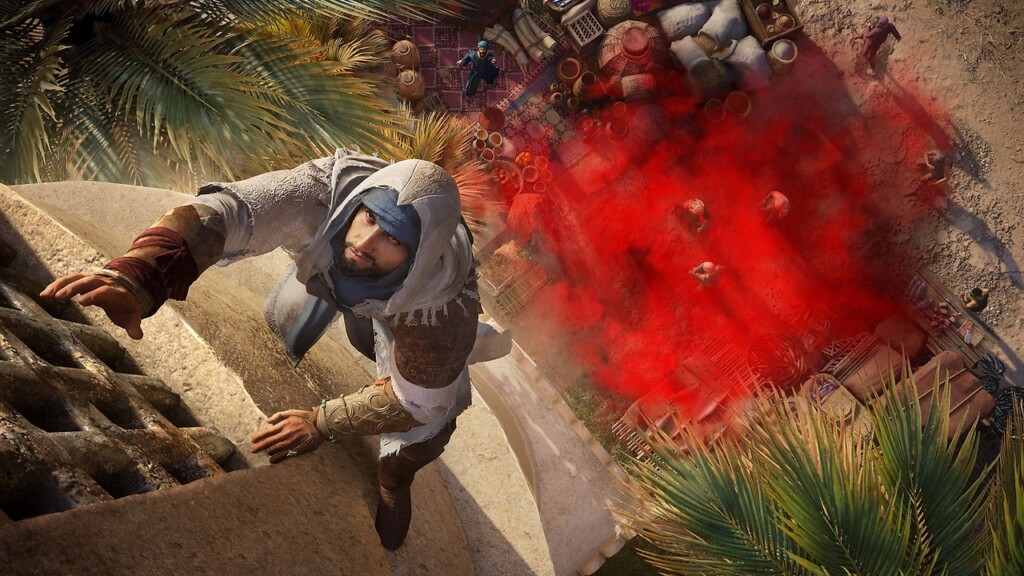
Remake, reboot… remoot?
The anniversary led many fans to speculate that Ubisoft might develop a remastered or rebooted game from an earlier title in the series. However, these possibilities were quickly dismissed.
Remakes come with high technology expectations from players, and it was a risky proposition given the technical restraints and capabilities of the development team. Salomon says that they also wanted to make their own mark with new characters and storylines.
“We also did not want to disappoint fans with their expectations when it comes to modernising the first Assassin’s Creed or Assassin’s Creed 2. In short, we were in a situation where we wanted to go all-in on nostalgia for the anniversary but without falling into the constraints of a classic remake or a reboot. We rapidly arrived at the ambition of paying homage to AC1, while creating a brand new game in the franchise,” he says.
“The word ‘remoot’ quickly came as a joke in our conception meeting, but somehow it stayed. It perfectly reflected our intentions for Mirage, creating something new while paying homage to the beginning of the franchise. Mirage was indeed designed as a great mix of the two periods, benefiting from both of them”
An urban playground
The game’s return to the series’ roots was most evident in the city location of Baghdad.
“After our research, we decided Baghdad would be the perfect location, as it used to be a major city during this period,” Salomon explains. “It would be a great destination to offer a denser and lively playground with local crowds and an urban setting, and the round city makes it a perfect map for a video game. Going back to the roots of a more condensed Assassin’s Creed game was the right choice to reconnect with part of our audience.”
The choice to reduce the scope of the world – in terms of map size at least – plus the desire for a shorter, more focused experience provided a welcome overlap between what players wanted, and the studio’s production constraints. However, that’s not to say that the development team wanted to take the easy path.
“The world map of Mirage is smaller compared to the recent instalment of the series but it wasn’t less challenging to pull out. A high-density city requires globally more work at every level,” Boudon explains. “In visual design, scene design, technical optimisation, and also in level design, with a greater distribution of enemies, NPCs, ingredients, and navigation routes.”
Due to the crowded city and tight alleyways of Baghdad, for example, mounts caused a lot of issues, which initially resulted in some curious cases of camel parkour.
“We reduced the speed of mounts in the cities, and we put blockers on every staircase to not end up doing parkour on the roof with your mounts,” laughs Boudon. “We exposed ourselves to create more bugs to handle, and we even added a specific animation so Basim lowers his head when passing under an arch.”
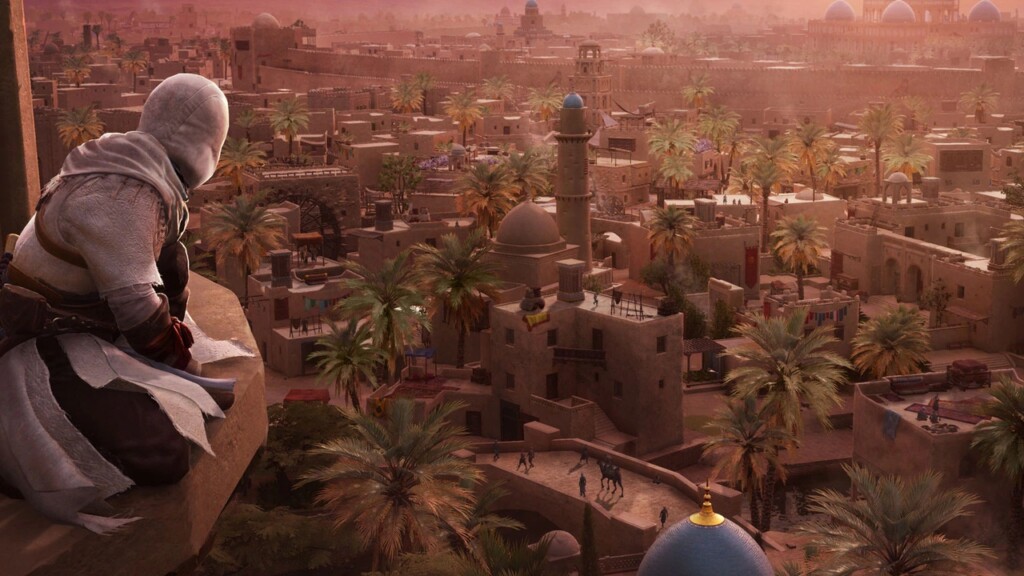
It was also a challenge to determine how much of the franchise’s extensive body of lore to use. Assassin’s Creed Mirage serves as a prequel of sorts to Assassin’s Creed Valhalla and protagonist Basim will be a familiar face to many players. The team wanted to ensure that new players could jump in without feeling alienated, and that long-time players would find the game’s story additive to the franchise as a whole.
“We did our homework, we played every game, we noted every dot, noting and referencing everything,” says Boudon.
The renewed emphasis on stealth and assassinations caused much debate and planning. Valhalla was more focused on combat and didn’t innovate in this area, so careful attention was paid to refining the core gameplay loop around the stealth experience.
“Systemically, you are rewarded for being stealthy, with a better flow and empowerment given by the assassin focus, which is the superpower of the game,” Boudon says. “On the other side, you are given strong incentives to not stay in the conflict loop too long, with the increase of notoriety and the increasing difficulty of having multiple opponents coming to battle.”
This more measured approach is also reflected in the detective structure of the game, which is an intentional nod to the investigative gameplay featured in the first Assassin’s Creed.
“It was directly inspired by the first Assassin’s Creed, and when we replayed the game, it struck us how much of it was built around investigation before assassinating your target. From that, we built an open structure of investigation in Baghdad represented by an investigation board, unveiling and describing your clues, and your current leads to follow,” Boudon says.
“This investigation will always end up with a black box mission, celebrating the player agency, and letting you choose how you want to approach and kill a main target through systemic and uncrafted opportunities.”
Although many of the design choices taken in Assassin’s Creed Mirage deliberately look to the past, the development of the game has given Ubisoft Bordeaux a sense of legitimacy and exposure.
“With Mirage, I think we’ve managed to leave our mark on this 15-year-old franchise and enter the Assassin’s Creed studios family,” says Salomon. “For us, at Ubisoft Bordeaux, it’s only the beginning. We hope to keep participating in the amazing franchise and capitalise on what we’ve learned.”
